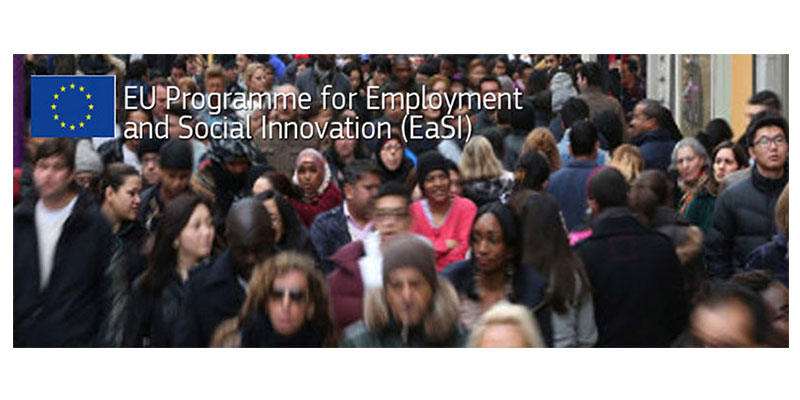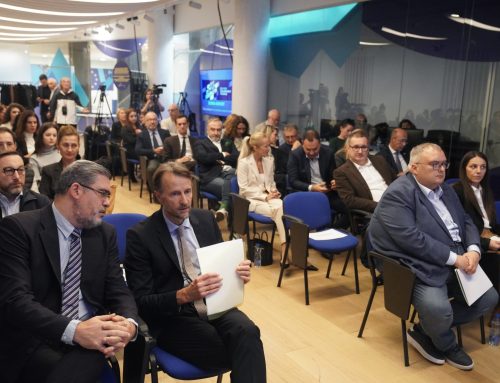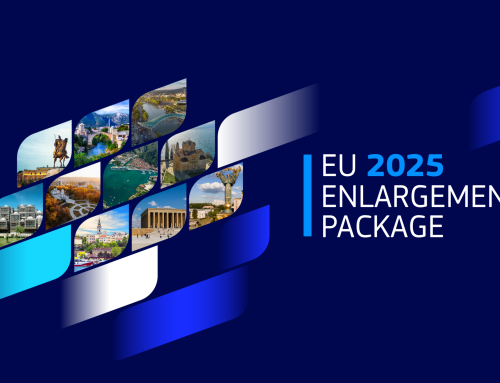The European Investment Fund (EIF) and Erste Bank Serbia have signed a new guarantee agreement aimed at supporting micro-enterprises in Serbia under the EU Programme for Employment and Social Innovation (EaSI).
This EaSI guarantee agreement will cover a loan portfolio of EUR 4.7 million for around 800 Serbian micro-borrowers, who will be able to benefit from loans with attractive conditions, without having to provide additional guarantees.
Commenting on the transaction, Marianne Thyssen, EU Commissioner for Employment, Social Affairs, Skills and Labour Mobility, said: “The European Commission is fully committed to promoting inclusive entrepreneurship in the fight against social and financial exclusion. I therefore warmly welcome today’s agreement with Erste Bank, which marks the first of its kind in Serbia under the EaSI programme. This agreement worth EUR 4.7 million will support some 850 micro-entrepreneurs, particularly the most vulnerable ones, in starting up and developing their business. This will allow them to create jobs and inclusive growth at the grass-roots level.”
Speaking at the signature event in Belgrade, EIF Deputy Chief Executive, Roger Havenith, said: “I am delighted to see EIF collaborating so closely with Erste Bank Serbia to expand its activity under EaSI in Serbia. Thanks to today’s agreement, I am confident that Erste Bank Serbia will be able to reach out to those Serbian micro-entrepreneurs whose risk profile would otherwise prevent them from accessing traditional bank financing.”
Slavko Carić, CEO of Erste Bank Serbia, stated: “The cooperation we have launched with the European Investment Fund and the EaSI Guarantee will enable us to provide support to small businesses and entrepreneurs that have been operative less than two years. They will be strong drivers of future changes and the development of our country. Besides financing, we will also be providing them with education and mentoring support on their way to success. Erste Bank Serbia, together with its partners, contributes to building a stronger community and to the overall well-being of all society.”
Erste Bank Serbia will implement the social banking programme gradually, starting with providing offers for start-ups and social entrepreneurs, followed in 2017 with offers for civil society organisations and finally, for 2018, it is planned to develop offers for low income private individuals.
EIF is not providing direct financial support to enterprises but is implementing the facility through local financial intermediaries, such as microfinance, social finance and guarantee institutions, as well as banks active across the 28 EU Member States and additional countries that are participating in the EaSI programme. These intermediaries are directly working with interested parties to provide support under the EaSI guarantee.
Micro-enterprises wishing to apply for a micro-loan under EaSI in Serbia can do so by contacting directly one of the 76 branches that represent Erste Bank Serbia across the country.
About the Programme for Employment and Social Innovation
The European Commission’s Programme for Employment and Social Innovation (EaSI) aims at supporting the EU’s objective of high level employment, adequate social protection, fighting against social exclusion and poverty and improving working conditions. The EaSI guarantee scheme was launched in June 2015 and is funded by the European Commission and managed by the European Investment Fund.
It provides support to financial intermediaries that offer microloans to entrepreneurs or finance to social enterprises. The objective is to increase access to microfinance for vulnerable groups who want to set up or develop their business and micro-enterprises, through notably loans of up to EUR 25 000. In addition, for the first time, the European Commission is helping social enterprises through investments of up to EUR 500 000. The microfinance and social entrepreneurship support is currently being implemented through the EaSI guarantee, which enables financial intermediaries to reach out to micro-entrepreneurs and social enterprises that would not have been able to gain finance otherwise due to risk considerations.
Furthermore, the European Commission is reinforcing the social dimension of the European Fund for Strategic Investments (EFSI) for both microfinance and social entrepreneurship. Overall, the total amount of support to these areas is expected to increase (from EUR 193 million under the EaSI programme) to about EUR 1 billion, mobilising some EUR 3 billion in additional investment.
About EIF
The European Investment Fund (EIF) is part of the European Investment Bank Group. Its central mission is to support Europe’s micro, small and medium-sized businesses (SMEs) by helping them to access finance. EIF designs and develops venture and growth capital, guarantees and microfinance instruments which specifically target this market segment. In this role, EIF fosters EU objectives in support of innovation, research and development, entrepreneurship, growth, and employment.
More information on EU microfinance and social entrepreneurship support is available under:
EU support to social entrepreneurship
About Erste Bank Serbia and Erste Group
Erste Bank Serbia is part of Erste Group. This has been operating in Serbia since 2005, when it acquired the majority stake of Serbia’s oldest financial institutions, Novosadska Banka, founded in 1864.
Erste Group’s Social Banking programme “Step-by-step” directly addresses the needs of traditionally unbanked groups in the societies of Central and Eastern Europe (CEE) and Austria. Set to be rolled out across all seven of the banking group’s core markets by 2019, the programme fosters the financial inclusion of low-income individuals, starting entrepreneurs and social organisations. It offers them fair access to basic financial products, sound money advice and ongoing tailored business mentoring, so that they can gain the financial confidence needed to improve their lives.
A responsible approach to all business aspects enables Erste Bank Serbia to create sustainable value for all stakeholders, providing universal financial services, and to contribute actively, together with them, to the development of the local community and society as a whole.




